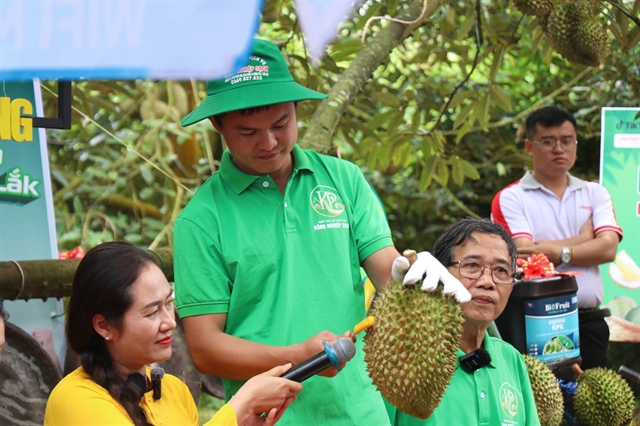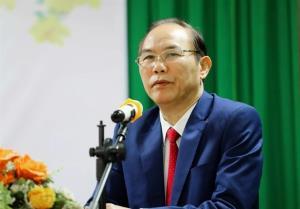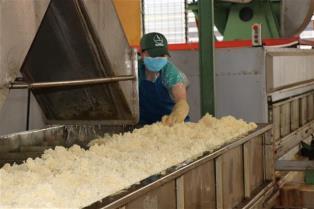By harnessing online sales platforms, farmers in Ea Knuếc Commune, Đắk Lắk Province, are finding new ways to boost consumption of their durians.

ĐẮK LẮK — By harnessing online sales platforms, farmers in Ea Knuếc Commune, Đắk Lắk Province, are finding new ways to boost consumption of their durians.
On August 24, a live-streaming session titled “Selling Durians with the Villagers” on TikTok and Facebook drew tens of thousands of viewers and resulted in more than 60 tonnes of the local Dona variety being sold within just two hours.
The event, joined by Ngô Thị Minh Trinh, secretary of the Ea Knuếc Commune Party Committee, was more than a sales drive; it was a pioneering step in bringing agricultural produce into the digital space while aligning with Việt Nam’s broader strategy on innovation and digital transformation.
The Dona durian, with its golden flesh and small seeds, is one of the most popular varieties in Việt Nam, valued for its rich aroma and naturally sweet taste.
Yet beyond flavour, Ea Knuếc offers something more: a distinctive cultural and natural landscape tied to the life of local ethnic communities.
By promoting their produce online, the commune aims not only to expand the market but also to share the stories of growers and the cultural identity of the region with wider audiences.
The live-stream carried the theme “Fragrant as a Promise – Sweet from the Heart of the People”, a message underscoring the commitment of both local authorities and farmers to provide the best-quality fruit, grown with dedication and nurtured by the land of Ea Knuếc.
According to Secretary Ngô Thị Minh Trinh, the objective of the event was not measured simply by sales volume.
More importantly, it created a channel to showcase the commune’s specialty, giving domestic consumers access to premium-quality products that were previously destined mostly for export. It also encouraged farmers to embrace digital literacy, moving from being growers in their fields to “digital citizens” capable of both selling and promoting local culture online.
The orchard chosen for the live-stream belonged to Nguyễn Công Điềm, who manages 1.8 hectares of durian planted in 2014, producing about 35 tonnes annually.
He explained that price fluctuations and unstable markets in recent years have left farmers uncertain.
For him, the event was not only a chance to sell fruit but also a turning point in how farmers think and act.
“After watching the session, I want to build my own channel to share the story of growing and selling durians, and to promote the ‘king of fruits’ to both domestic and overseas consumers,” he said.
For other growers, the impact was just as meaningful. Lê Thị Thời, a farmer from Krông Pắc, expressed her pride in seeing local durians promoted online to such a large audience.
She hoped the session, led by the commune’s Party Secretary, would raise the profile of Ea Knuếc durians in particular and Đắk Lắk durians in general, especially varieties for export with high economic value.
She noted that most farmers had long focused solely on cultivation, with little knowledge of e-commerce.
Now, thanks to the initiative, they better understood that digital tools can open new sales opportunities, diversify markets and enhance product value.
She added that growers would gradually standardise their cultivation processes to ensure high-quality and safe produce that can serve both domestic and international consumers.
The event also attracted wider community support.
During the live-stream, individuals and businesses donated VNĐ3.8 billion (US$149,000) to develop a durian industry ecosystem in Ea Knuếc.
Secretary Ngô Thị Minh Trinh said the commune had a clear plan for the funds, which would be used to support farmers in applying digital transformation in agriculture, upgrading cultivation practices, and carrying out social welfare programmes.
The ultimate goal, she emphasised, is to build a sustainable durian ecosystem in Ea Knuếc and across Đắk Lắk Province.
Today, Ea Knuếc has nearly 6,000 hectares of durian plantations, with estimated output of 60,000 tonnes in 2025.
By venturing onto online platforms, the commune has not only found an alternative sales channel but has also begun to reshape the mindset of farmers, aligning local agriculture with the demands of a modern digital economy. — VNS




